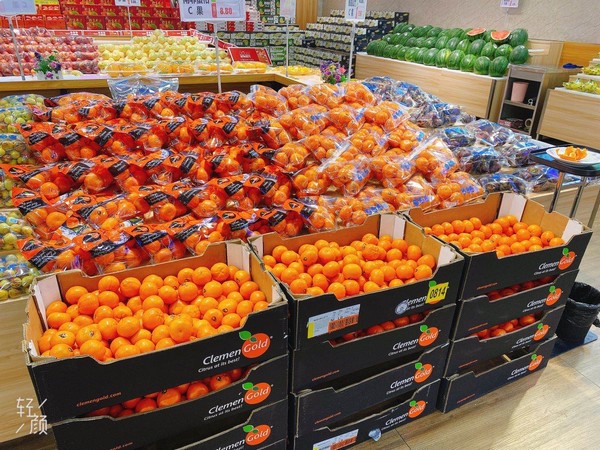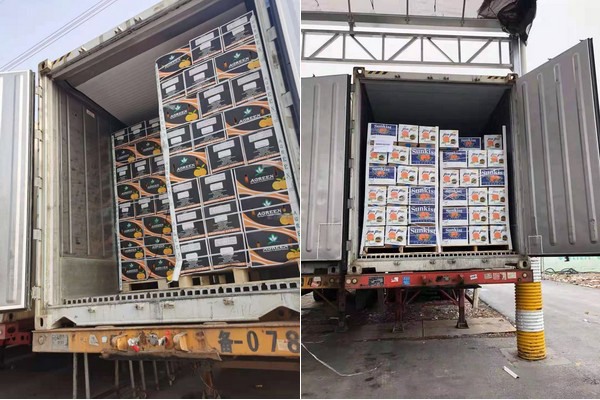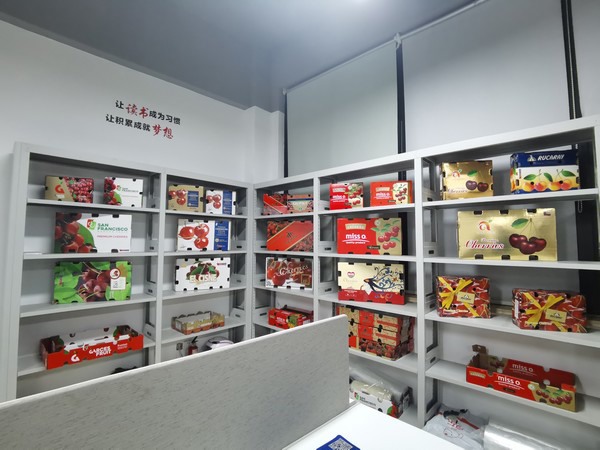The weather is warming up and so the variety of fruit in Chinese markets is growing richer. There is a huge supply volume of domestic fresh fruit in the Chinese market, but for many import fruits this is the slow season. Imports of Western fruit in particular suffer from several major obstacles. Only imported oranges are sold in relatively large volumes. Manager Zhang Tianyi, spokesperson for Zhejiang Sango Fruit Trade Co., Ltd. recently talked about current conditions in the import orange market.
This is the peak period for many orange production areas in the Southern Hemisphere. "The growing conditions in South African and Peruvian orchards were quite good last year, and this year a great number of traders is looking to buy import oranges from these regions. Furthermore, South Africa and Peru enjoyed abundant harvests this year. That is why the supply volume is larger than around this time last year," explained manager Zhang.
"The oranges from Chile are not doing as well in the Chinese market. They are transported over a long distance, which raises the cost price and weakens their competitive market position. And there is only a brief window of opportunity for Chilean oranges, until other oranges dominate the market. Chilean oranges are not that well known in China. Only the W.Murcott is widely recognized. That is why the Chinese import volume of Chilean oranges has never been great. In addition, the trade relations between China and Australia are uncertain this year, and many importers reduce their import volume to avoid risks. That is why the import volume is much smaller than in previous years."

Shipping capacity is tight across the world, and this situation has been ongoing for months now. Many exporters have the products, but are unable to secure hold space. "Take Peru as an example, we used to import 5 shipping containers per week. The supply volume was balanced and stable. This year, however, ports are struggling with backlogs and there are many delays. In some cases the 20 containers that were set to arrive over a period of 4 weeks all arrive at the same time. The irregular shipping periods cause much uncertainty in the fruit market," said manager Zhang.
"In addition, the extended shipping period has negative effects on the fruit. Some of the oranges are rotting in the hold, and a single rotten fruit can spoil an entire box. The product quality is suffering from shipping delays."
Sango Fruit has always worked hard to expand their activities in the wholesale markets and retail markets of second-tier cities across China. There are 14 branch offices in east and southwest China.
According to manager Zhang: "Although first-tier cities such as Beijing, Shanghai, Guangzhou, and Shenzhen have high consumption levels, they only have a small number of retail points. They cover only a small part of the country. Second-tier cities do not have the same economic power as first-tier cities, but there is huge potential there. That is why the Chinese fruit market is 'decentralizing'. If we are able to open a booth in every wholesale market, then we can change the prevailing trend from quantity to quality."

When asked about developments in the import fruit industry, manager Zhang replied: "First, I think that every production area needs to establish a supply network that allows for traders from many production areas to connect. Second, the key is quality control. Many production areas across the world are looking towards China. The annual import volume of fruit keeps growing. Under these circumstances an importer only has to pay attention to product quality, and they will stand out in the market. The most import attitude is summarized as follows, 'if others do not sell, I sell it, and if others sell it, I sell better quality'.
"Many importers in China are aware of this approach, and the differences between them are growing smaller. That is where the economy of scale comes in. Larger companies have an advantage over smaller companies. Companies can expand through close cooperation with suppliers and investment in production areas. The larger scale of operations can reduce the cost per product, which gives the company an advantage in the market."

Sango Fruit will participate in the Shanghai International Fruit Expo on August 12-14. Their stand is located in hall E4 at booth D1-1. Manager Zhang briefly talked about the upcoming expo: "Most of our suppliers come from South America, Oceania, and Africa. We hope to use the expo as an opportunity to expand our supply channels and connect with suppliers from North America."
For more information:
Zhang Tianyi - Manager
Sango Fruit Trade Co., Ltd.
Tel.: +86 13951737818
E-mail: tim_zhang@sangofruit.com
Shanghai International Fruit Expo
Registration: https://presys.fruitexpo.cn/reg/fruit21/registercn/login
E-mail: everflourish@fruitexpo.cn
